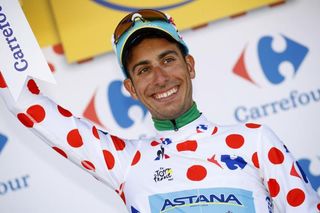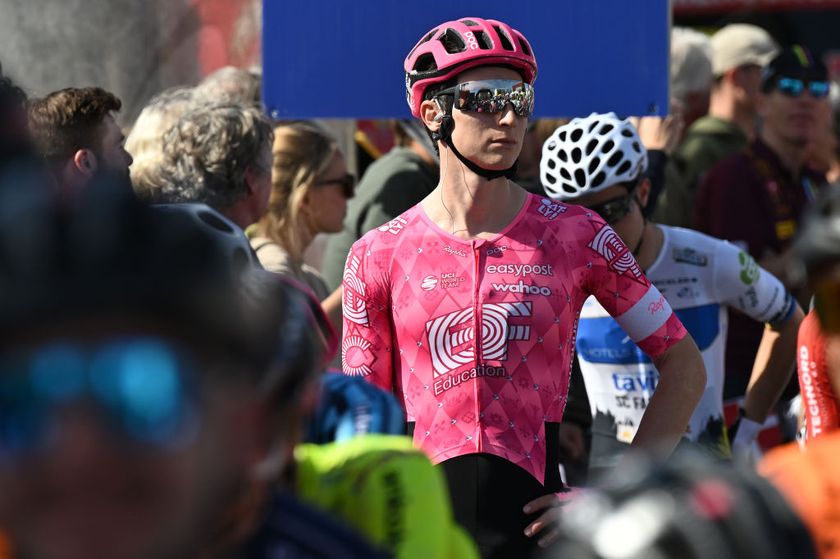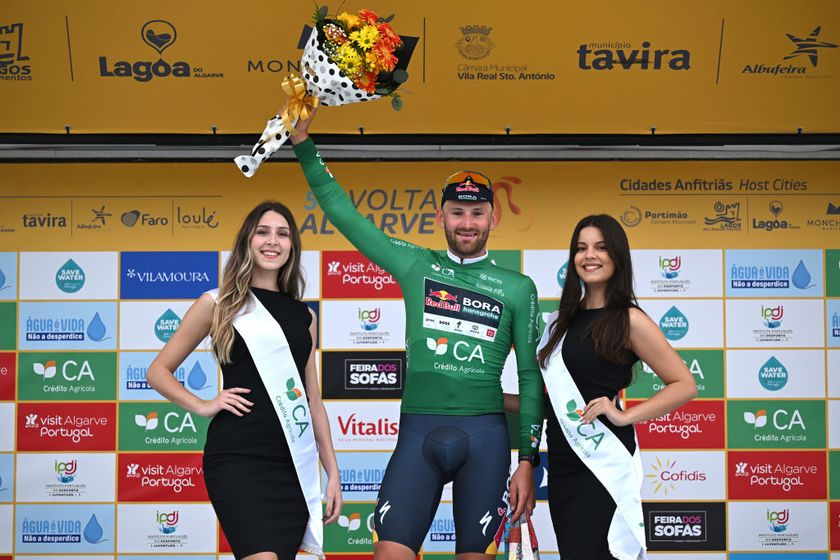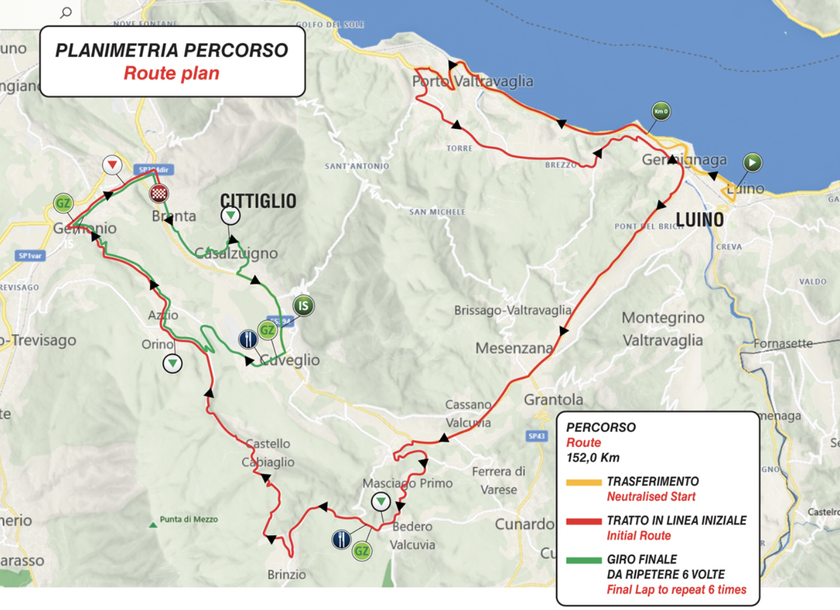Fabio Aru: I'm not scared of attacking Froome
Italian champion shows his hand and wins Tour de France stage





In mid-April, Fabio Aru's season seemed in tatters when he was forced to scratch the Giro d'Italia from his programme after injuring his knee in a training crash in Andalusia. There was little certainty that he would recover in time for the Tour de France, and, as he entered the finals months of his existing contract with Astana, many doubts about his status beyond 2017.
What a difference a few weeks make. Having quietly impressed on his return to action at the Critérium du Dauphiné in early June – his first race since abandoning Tirreno-Adriatico in March – Aru proceeded to solo to the Italian national title in Ivrea a week before the Tour. Victory atop La Planche des Belles Filles on Wednesday afternoon was a further confirmation of a remarkably rich vein of form.
When Team Sky whittled down the yellow jersey group to just 20 or so riders on the lower slopes of stage 5's final climb, it looked as though Chris Froome and his companions were once again destined to dictate terms and conditions on this Tour. A little under three kilometres from the summit, however, Aru unleashed an acceleration of such fury that nobody felt moved even to try to match it. It was a startling exhibition.
"Sky are very, very strong, but logically if you are feeling good then you can attack," Aru said afterwards. "Today I felt good, and I'd tried to give a bit of a spectacle, to give the public something to applaud."
Weaving from side to side as he battled against the stiff gradient, Aru quickly opened a lead of 100 metres over the chasers, and continued to augment his advantage thereafter. Although Froome's later acceleration helped to limit the damage, Aru bounded up the final 20% slopes to win the stage some 16 seconds clear of Dan Martin (Quick-Step), moving up to third overall in the process, just 14 seconds behind Froome.
"The win has not really sunk in. I feel great, particularly after the difficult spring I had because of my injuries," Aru said. "I spent time during the Giro with my family, but it was very hard to accept that I couldn't race there, especially when it was starting in Sardinia, because it's not every year that it happens. When I went to the start in Olbia, I got a lot of support from the public, but I knew I had to get back to the Tour. The Dauphiné went well for me, and after that, I realised that I could do something here."
Aru is the second Astana rider in the colours of Italian champion to win atop La Planche des Belles Filles after his former stable-mate Vincenzo Nibali's triumph on the same site in 2014. That win put Nibali back into the maillot jaune and set him firmly on his way to overall victory, but Aru preferred to focus on the here and now rather than his long-term prospects in the Tour.
Get The Leadout Newsletter
The latest race content, interviews, features, reviews and expert buying guides, direct to your inbox!
"I've never been up this climb, but I watched the videos, and I knew it from watching when Nibali won in 2014 and Froome in 2012. That's why I wanted to attack at three kilometres to go," Aru said. "But I'd prefer to take things calmly for now. It's still a very long race."

Learning from 2016 and taking on Froome
Aru could only manage 13th overall last year in his debut Tour, a race which conveyed some very mixed messages. After a subdued opening half, his notable powers of recovery came to the fore and he began to scale the classification in the third week, and come the final mountain stage, Aru was within touching distance of the top five, or perhaps even the podium.
Astana duly spent the rain-sodden stage to Morzine setting the tempo in the peloton, preparing the ground for an offensive that would never materialise. Aru would fall away inexplicably on the Col de Joux Plane, the very last mountain pass of the race, and cross the line in tears. The experience was so chastening that he was initially scheduled to avoid the Tour altogether in 2017.
"In my first Tour, I had a bad experience in the last week but I promised myself to come back as soon as I could, although obviously the Giro starting in Sardinia changed things for me and meant that I was planning to go to the Giro this year instead," Aru said. "I had a difficult spring, but the base form was good because I had had a good winter and that made me want to show what I could do here. Winning the Italian Championships gave me a real confidence boost too."
Aru has yet to sign a contract for 2018, and although Astana manager Alexandre Vinokourov has expressed his desire to keep the Sardinian, he has balked at the reported €3 million asking price. There is no shop window quite like the Tour, of course, and, on this evidence, Aru could move the market much closer to his own lofty valuation by the time the race reaches the Champs-Elysees.
In the shorter term, Aru seems to have won the internal contest to lead the Astana team, after Dauphiné winner Jakob Fuglsang finished more than a minute down, and now lies 15th overall, 1:33 behind Froome. "I'm not worried at all about who is the leader of not, the important thing is to form a good collective. If I have to work for somebody else that's not a problem," Aru said diplomatically.
The short, explosive climb of La Planche des Belles Filles may have lent itself to Aru's talents, but the sheer ferocity of his acceleration seemed to surprise even the men who had raced against him at the Dauphine just weeks ago. Now third at 14 seconds, and with only 22.5 kilometres of time trialling left between here and Paris, Aru has deftly painted himself into a central position in a general classification picture many expected to be dominated by Froome, Richie Porte (BMC) and Nairo Quintana (Movistar).
"Chris is very strong but in 2014 I remember the Vuelta and I battled against him there. I'm not scared of attacking him, even though I've got a huge amount of respect for him," said Aru, who was coy about identifying Froome's weaknesses.
"It's difficult to say, because he's hard to beat when he's in top condition. It seemed he wasn't so good at the Dauphiné but he's proved here that's not the case. I don't know, but I'll try to see what I can do to attack him."
To subscribe to the Cyclingnews podcast, click here.

Barry Ryan was Head of Features at Cyclingnews. He has covered professional cycling since 2010, reporting from the Tour de France, Giro d’Italia and events from Argentina to Japan. His writing has appeared in The Independent, Procycling and Cycling Plus. He is the author of The Ascent: Sean Kelly, Stephen Roche and the Rise of Irish Cycling’s Golden Generation, published by Gill Books.
Most Popular







